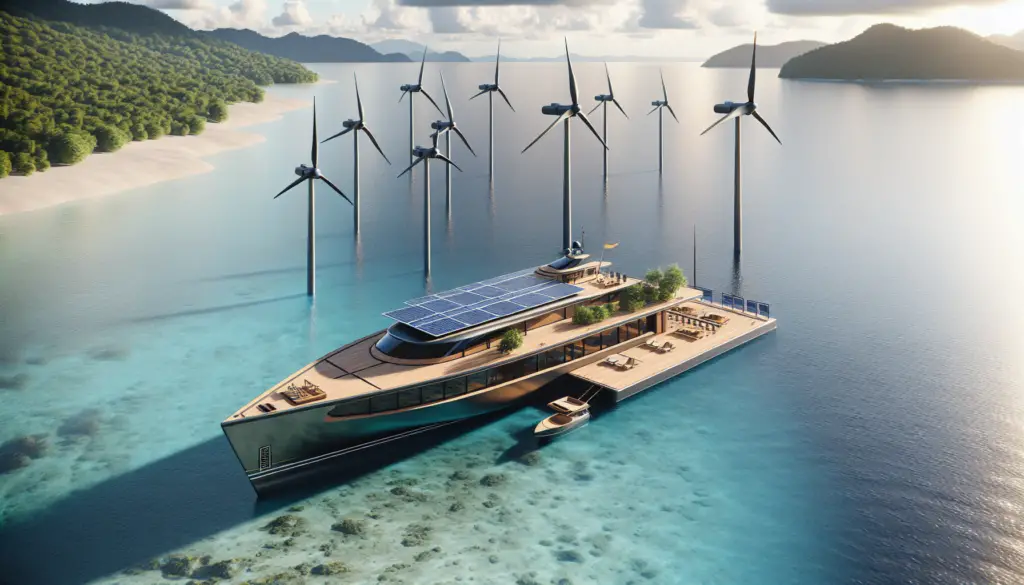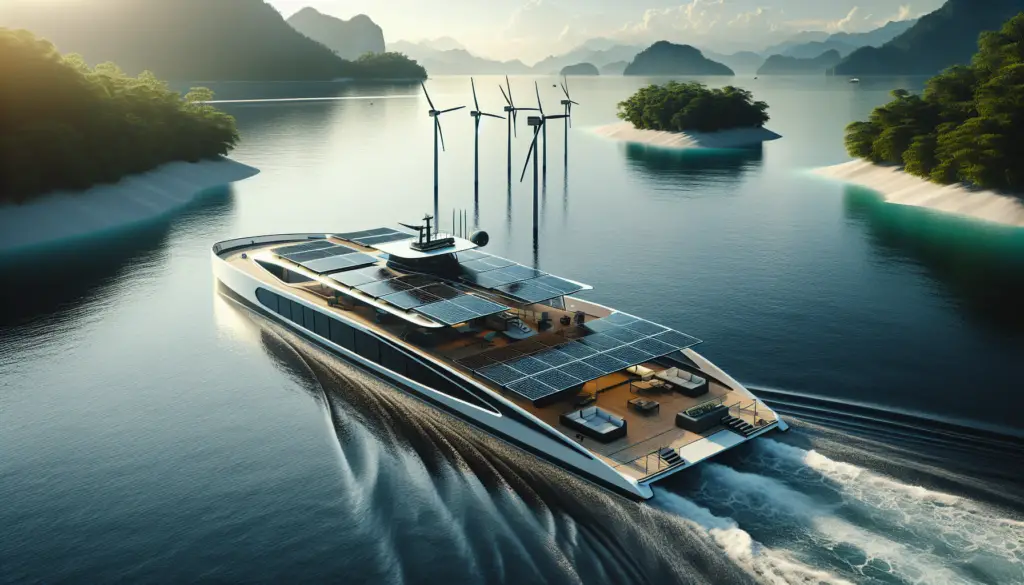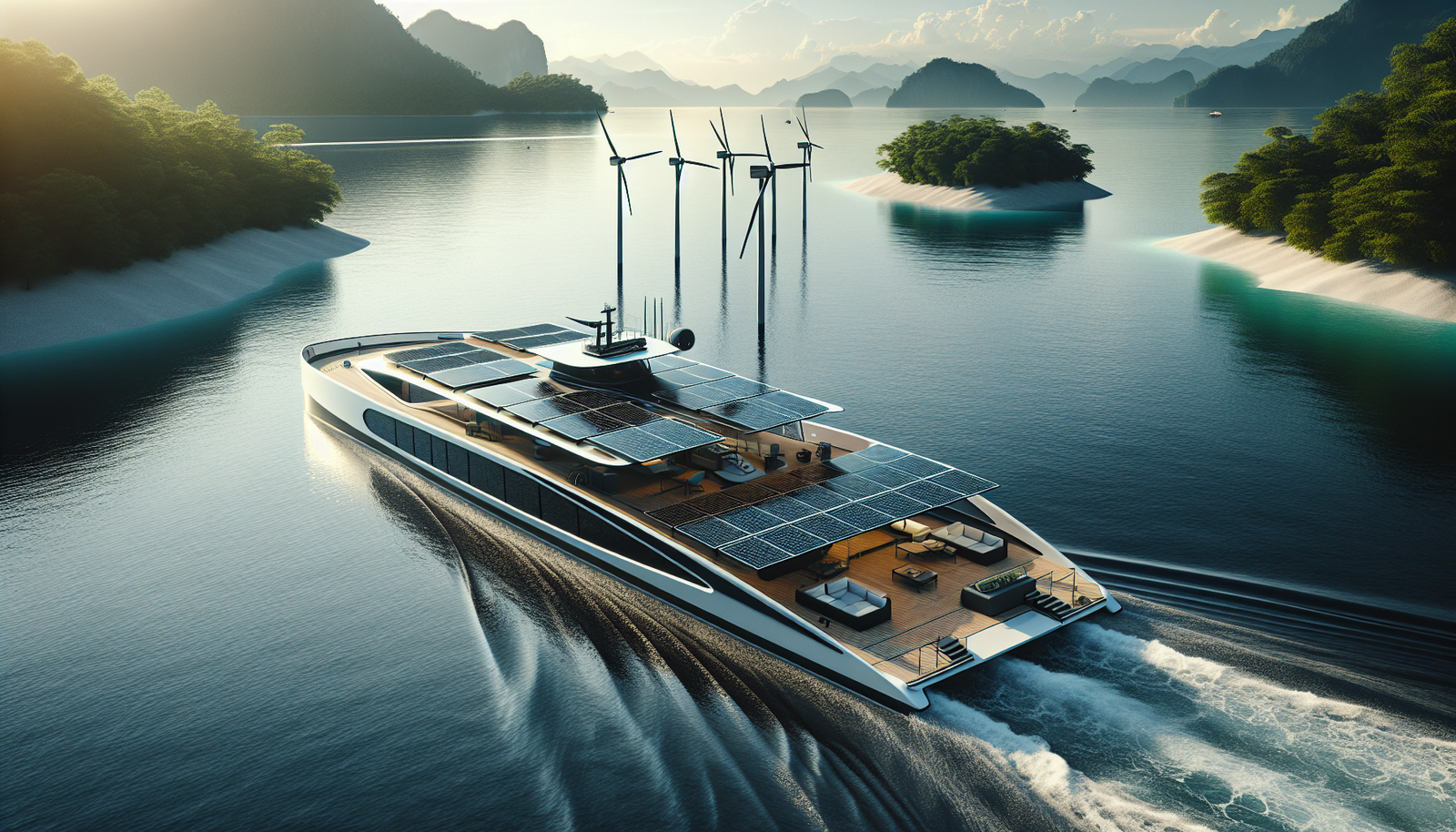Imagine yourself out on the open water, feeling the sea wind in your hair and the sun on your face. As you glide in your boat across the shimmering waves, it’s easy to forget about the world’s environmental issues. However, with the rising concerns over climate change and marine pollution, it’s high time that you started to consider how your boating activities can impact the environment. “Sustainable Boating Practices for The Future” offers a deeper understanding of the relationship between boating and sustainability and provides practical guides to help you lessen your negative impact on marine life and ecosystems. Learn how to continue enjoying your water escapades while also ensuring the health of our waters for generations to come.
Understanding Sustainable Boating
When it comes to boating, there is so much more to consider than where the wind is coming from or where the fish are biting. A major focus now lies on a concept called sustainable boating. Sustainable boating emphasizes on practicing techniques that preserve lakes, rivers, and oceans along with the creatures that inhabit them. It prioritizes the reduction of environmental footprint by opting for more eco-friendly boating materials, fuel-efficient designs, alternative energy sources, and waste management protocols that keep our waters unpolluted.
Conceptual Overview
Sustainable boating is all about balance. It is determined by the measures you take to ensure that your boating activities cause the least possible harm to the marine ecosystems while maximizing enjoyment. This involves every step from the design and building of your boat using environmentally friendly materials, techniques and fuel sources to operational aspects such as waste management within the vessel and careful piloting to prevent damage to sensitive habitats.
Why Sustainable Boating is Important
Your love for boating should not come at a cost to the environment. The importance of sustainable boating lies in safeguarding the health of our waters and marine life, while still enjoying boating activities. It helps in reducing pollution levels, conserves resources while teaching you to respect and value the natural beauty of water bodies.
Challenges in Implementing Sustainable Practices
Despite the urgent need, implementing sustainable practices in boating is not always easy. Challenges range from the high cost of eco-friendly materials and sustainable fuel sources to a lack of knowledge and awareness on sustainable practices amongst boaters. The lack of strict regulations and enforcement also hinders efforts to advance sustainable boating.
Eco-Friendly Boating Materials
A significant part of sustainable boating begins with the choice of materials used to construct your vessel.
Bamboo
An increasingly popular choice of material for boat building is bamboo. It is renewable, resilient and extremely versatile. Bamboo’s ability to withstand harsh conditions and its natural resistance to pests and diseases make it an excellent choice for sustainable boating.
Recycled Plastic
Another great option is to use recycled plastic in the construction of boats. By repurposing plastic waste, you not only solve the problem of disposing of these non-biodegradable materials but also contribute to the creation of robust, lightweight and durable boat structures.
Biodegradable Materials
More and more, boating enthusiasts are turning towards biodegradable materials. These are materials that can decompose naturally over time without causing harm to the environment. Items like hemp, flax, and cork are being integrated into boat design, showing that sustainability and innovation can go hand-in-hand.

Green Boat Design and Construction
In the quest for sustainability, the design and construction of the boat play an essential role.
Energy Efficient Designs
Modern boat designs now focus on energy efficiency. From hull designs that reduce drag to systems that minimize power wastage, these designs help reduce fuel consumption and thus lower emissions.
Use of Sustainable Materials
The use of sustainable materials in boat design is becoming increasingly common. As mentioned earlier, bamboo, recycled plastics and biodegradable substances are all excellent options.
Innovation in Eco-Friendly Construction Techniques
Construction techniques are also evolving to include more eco-friendly approaches, like using non-toxic paints and sealants or optimizing construction processes to minimize waste.
Sustainable Fuel Alternatives
Conventional fossil fuels have a significant impact on the environment. However, several sustainable alternatives are now available.
Biofuels
Biofuels, created from organic matter like plant oils or animal fats, can serve as effective alternatives to conventional fuels. They are renewable and tend to release fewer harmful emissions when burned.
Solar Power
Equipping boats with solar panels can harness the power of the sun and convert it into usable energy. This renewable energy source is perfect for powering different systems aboard the boat, making it a great sustainable option.
Wind Energy
Implementing sail riggings or installing wind turbines can help harness wind energy for propulsion, a practice as old as boating itself but now finding new relevance.
Electric Propulsion Systems
Electric propulsion systems are gaining traction as another sustainable alternative. Powered by rechargeable batteries, these systems are extremely efficient and produce zero emissions.

Water Pollution Mitigation
Sustainable boating also involves practices that minimize pollution.
Proper Waste Management
Proper waste management on board involves regular maintenance of engine systems and onboard facilities, disposing waste responsibly on land, using biodegradable cleaning products and more.
Control of Oil and Fuel Spills
Preventing oil and fuel spills is vital. Regular equipment checks, fitting fuel collars or oil absorbent pads can help avoid such calamities.
Reducing Plastics and Debris
Limiting the use of single-use plastics on board, encouraging recycle and reuse practices can prevent plastic and debris from getting dumped into the water.
Education and Training on Sustainable Boating
A significant stride towards sustainable boating can be made through education and training.
Educational Programs and Workshops
Many marinas and boating associations now offer programs and workshops dedicated solely to sustainable boating practices, sharing tips and best practices to promote responsible boating.
Online Resources
Some excellent online resources serve to educate aspiring and seasoned boaters alike. These resources provide invaluable insights into sustainable boating, outlining why it matters, and offering practical steps on how to implement it.
Certification for Green Boating
There are also certifications for green boating that enable boaters to demonstrate their commitment to sustainability. These certifications prove helpful in spreading awareness and fostering a culture of responsible boating.
Regulations Supporting Sustainable Boating
Regulations play a vital role in promoting sustainable boating.
International Standards and Regulations
Internationally accepted standards and guidelines offer a framework for developing sustainable boating practices. They provide benchmarks for what constitutes responsible, eco-friendly boating.
Role of Government Policies
Government policies can encourage or mandate sustainable boating. Policies could include incentives for eco-friendly boat designs or renewable fuels, laws regulating boat materials and components, and fines for noncompliance.
Compliance and Enforcement
Ensuring adherence to regulations is crucial. Enforcement mechanisms like routine inspections and penalties for noncompliance can ensure that the boating industry maintains environmental integrity.
Role of Technology in Sustainable Boating
Technology can greatly facilitate sustainable boating.
Inventive Propulsion Systems
From biofuel engines to electric propulsion systems, inventive technologies are offering cleaner, more efficient ways to power boats.
Energy Monitoring Devices
Devices that monitor energy use can help boat owners identify wasteful practices and improve their energy efficiency.
Innovative Hull Designs
Innovative hull designs can minimize drag and maximize fuel efficiency while providing great stability and comfort.
Community Involvement in Sustainable Boating
It takes more than just individual actions to bring about large-scale change in boating practices.
Boating Associations and Clubs
Boating associations and clubs can create platforms for sharing ideas and fostering communities committed to sustainable boating.
Community Clean-Up Activities
Organizing clean-up drives brings people together for a common cause, raising awareness about the need for clean, unpolluted waterways.
Public Awareness Campaigns
Campaigns can help educate the public on the importance of sustainable boating and the steps they can take to be more environmentally conscious.
Future Trends in Sustainable Boating
A sustainable future for boating promises to be exciting, facilitated by steady advancements in technology and growing environmental awareness.
Advancements in Eco-Friendly Materials
Expect to see greater innovations in eco-friendly materials, reducing reliance on traditional, less sustainable alternatives.
Emerging Renewable Energy Sources
As research advances, we can expect more efficient and practical renewable energy solutions for boating such as advanced solar panel systems and more space-saving wind power systems.
Implementation of Artificial Intelligence and Automation
Artificial Intelligence (AI) and automation are making their way into boating. These technologies can optimize boat operations for maximum fuel efficiency and minimal environmental impact.
In conclusion, sustainable boating promises to be an exciting frontier. By making the commitment to be a more responsible boater, you can help preserve our precious water bodies for generations to come. Happy (and sustainable) boating!


[…] experienced the ocean’s raw beauty, its calming stillness, and its wild fury. “sustainable sailing: Eco-Friendly Strategies For Sailors” offers a comprehensive guide on how to respect and […]